Aunty Ayesha, and our obsession with supernatural
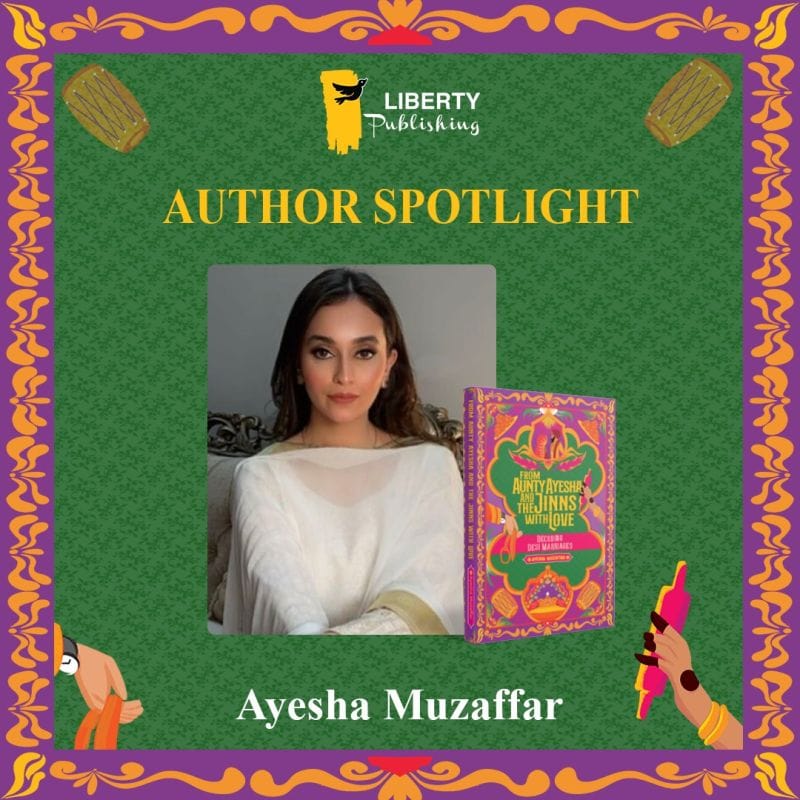
From Aunty Ayesha & The Jinns With Love” - How Ayesha Muzaffar became Pakistan’s gateway to jinn stories.
Winter and its chilly nights, bring with it the idea of warm angeethis, hot teas and cozy blankets -
and perhaps for some of us a visit to the world of the supernatural. Jinn stories are perhaps as much a part of desi culture as chai-biscuit or shaadi season.
For Screenwriter and Author Ayesha Muzaffar, the world of the unseen is more than that - it’s almost as if putting those stories down on paper is a calling, and it’s one that leaves her audiences hooked and wanting for more.
With her venture onto the big screen Deemak, coming this year and her new book The Haunting of Humera Jahangir & Other Unsettling Tales, coming in 2025 - Muzaffar is ready to scare Pakistanis unlike never before.
We spoke to her about her journey ahead of her upcoming releases.
EM: What made you start writing about the supernatural?
AM: I’ve always been drawn to the unseen—it’s like stepping into a world that exists just beyond the veil of what we know, and it gives me a thrill I can’t quite put into words. My first attempt at it was back in grade nine with a story called Woh Aurat, set in the eerie streets of Murree. The teacher at Convent thought that there was something wrong at home. There wasn’t.
For me, writing about the supernatural has been inevitable—it’s where folklore, fear, and faith collide. I didn’t just want to entertain; I wanted to document these stories in a way that made people question what they believe and what they fear. It’s the perfect playground for a storyteller like me.
EM: What can your fans hope to see from you next?
AM: I’ve been quietly working on something unlike anything I’ve ever written before. The Haunting of Humera Jahangir & Other Unsettling Tales will be my first venture into pure, adult horror—gruesome, spine-chilling, and unrelenting. Loosely based on true events, it’s a LIMITED nonfiction book that unearths the kind of dark, unsettling stories that have been whispered about but never fully told.
This project is deeply personal and terrifyingly raw, not suited for younger audiences or the faint-hearted. It’s the kind of book that makes you look over your shoulder, even in broad daylight. The stories dive into the supernatural, exposing the eerie corners of human experiences and the unseen forces that linger there. If all goes as planned, 2025 will be a year to remember, InshaAllah. Whether it’s self-published or makes its way to bookstores, I’ll ensure these tales reach those brave enough to read them.
EM: Where does your Instagram handle come from?
AM: The inspiration behind this account and everything I write stems from one man—my baba. He turned 56 some months ago, and as the white strands in his hair multiply, my love and protectiveness for him grow tenfold. He’s not just the idea behind Adnan Sahab from my first book; he’s the abu who recognized the tremble in my hands—the urge to write, to document the strange and the unseen.
It was he who gave birth to my first tale, and if anyone ever asks why this account is called what it’s called, tell them about the majestic man who makes Afghani chicken with mint chutney on cold winter evenings and lets his daughter meddle with jinns. Abu’s Jinns is a nod to my roots as a writer, to the stories he told me growing up—those enchanting, eerie tales that shaped me into who I am. The handle is a tribute to him, to the rich oral storytelling traditions of our families, and to the strange yet wondrous world of the unseen that became my playground. A little nostalgic, a little spooky, and entirely a love letter to my baba.
EM: What was the best part about writing From Aunty Ayesha and the Jinns with Love?
The best part was being able to blend humor, emotion, and cultural commentary into something so relatable. Writing this book felt like sitting down with a group of friends, swapping advice, and laughing about the absurdities of life. The jinns, of course, added their own cheeky wisdom, and I loved letting them bring ancient insight into modern relationships. But what really made it special was knowing that this book could genuinely help someone out there—whether it’s decoding the complexities of a marriage or just feeling less alone in their struggles.
EM: Why do you think horror as a genre appeals to so many people?
Horror lets us confront our deepest fears in a way that feels safe. It’s cathartic, thrilling, and oddly comforting because it reminds us that no matter how terrifying things may seem, there’s always a resolution—or at least a way to make peace with the unknown. For South Asians, I think horror is particularly appealing because it taps into our cultural superstitions and collective imagination. We’ve grown up with these stories, so there’s a strange familiarity to the fear—a connection to something bigger than ourselves.
EM: What was the best part about writing From Aunty Ayesha and the Jinns with Love?
The best part was being able to blend humor, emotion, and cultural commentary into something so relatable. Writing this book felt like sitting down with a group of friends, swapping advice, and laughing about the absurdities of life. The jinns, of course, added their own cheeky wisdom, and I loved letting them bring ancient insight into modern relationships. But what really made it special was knowing that this book could genuinely help someone out there—whether it’s decoding the complexities of a marriage or just feeling less alone in their struggles.
EM: Why do you think horror as a genre appeals to so many people?
Horror lets us confront our deepest fears in a way that feels safe. It’s cathartic, thrilling, and oddly comforting because it reminds us that no matter how terrifying things may seem, there’s always a resolution—or at least a way to make peace with the unknown. For South Asians, I think horror is particularly appealing because it taps into our cultural superstitions and collective imagination. We’ve grown up with these stories, so there’s a strange familiarity to the fear—a connection to something bigger than ourselves.
Follow Ayesha on Instagram @abusjinns for more tales of the unseen.

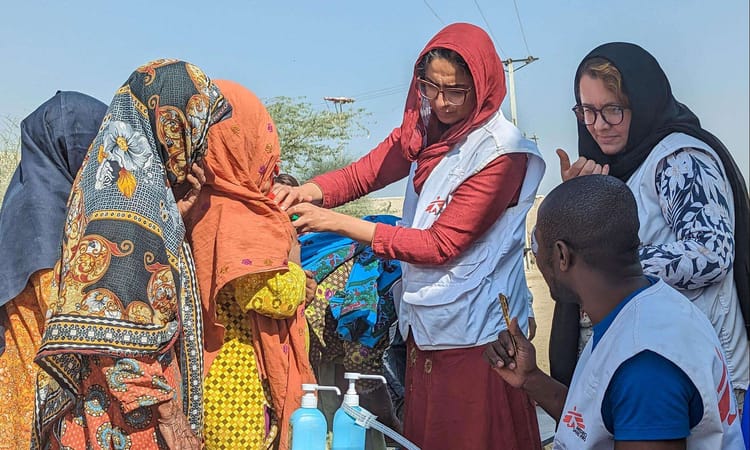
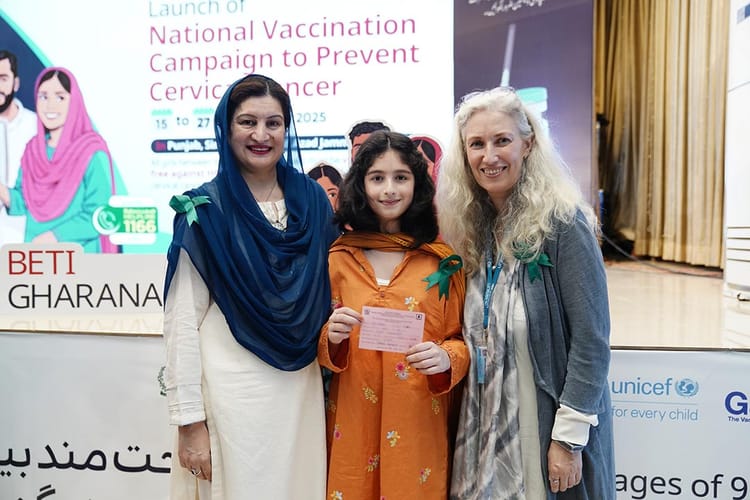
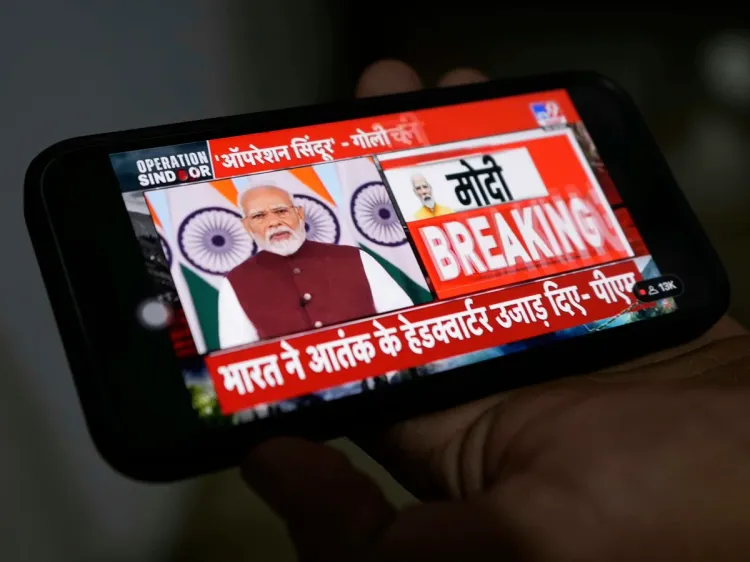

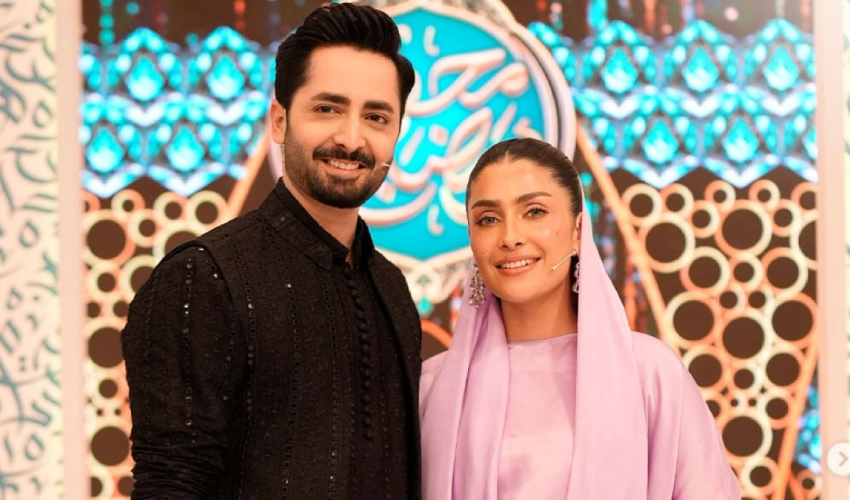
Member discussion